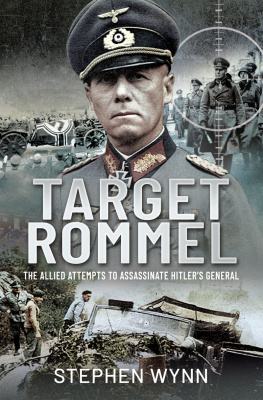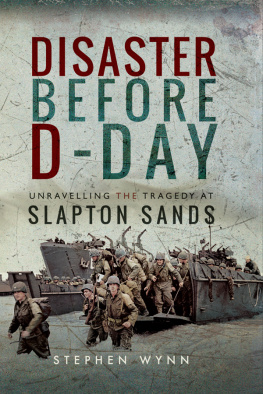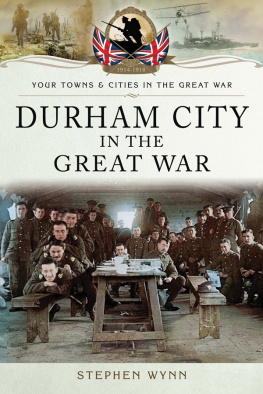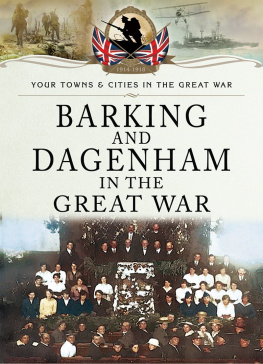Towns and Cities in the Great War
Dover
in the Great War
Towns and Cities in the Great War
Dover
in the Great War
Stephen Wynn
First published in Great Britain in 2017 by
PEN & SWORD MILITARY
an imprint of
Pen and Sword Books Ltd
47 Church Street
Barnsley
South Yorkshire S70 2AS
Copyright Stephen Wynn, 2017
ISBN 978 1 47382 793 6
eISBN 978 1 47386 505 1
Mobi ISBN 978 1 47386 504 4
The right of Stephen Wynn to be identified as the author of this work has been asserted by him in accordance with the Copyright, Designs and Patents Act 1988.
A CIP record for this book is available from the British Library.
All rights reserved. No part of this book may be reproduced or transmitted in any form or by any means, electronic or mechanical including photocopying, recording or by any information storage and retrieval system, without permission from the Publisher in writing.
Pen & Sword Books Ltd incorporates the imprints of Pen & Sword Archaeology, Atlas, Aviation, Battleground, Discovery, Family History, History, Maritime, Military, Naval, Politics, Railways, Select, Social History, Transport, True Crime, and Claymore Press, Frontline Books, Leo Cooper, Praetorian Press, Remember When, Seaforth Publishing and Wharncliffe.
For a complete list of Pen and Sword titles please contact
Pen and Sword Books Limited
47 Church Street, Barnsley, South Yorkshire, S70 2AS, England
E-mail:
Website: www.pen-and-sword.co.uk
About the Author
Stephen is a retired Police officer having served with Essex Police as a constable for thirty years between 1983 and 2013. He is married to Tanya and has two sons, Luke and Ross, and a daughter, Aimee. His sons served five tours of Afghanistan between 2008 and 2013 and both were injured. This led to the publication of his first book, Two Sons in a Warzone Afghanistan: The True Story of a Fathers Conflict , published in October 2010.
Both Stephens grandfathers served in and survived the First World War, one with the Royal Irish Rifles, the other in the Mercantile Marine, whilst his father was a member of the Royal Army Ordnance Corps during the Second World War.
Stephen collaborated with Ken Porter on a previous book published in August 2012, German PoW Camp 266 Langdon Hills. It spent six weeks as the number one best-selling book in Waterstones, Basildon between March and April 2013. They have also collaborated on other books in this local history series.
Stephen has also co-written three crime thrillers which were published between 2010 and 2012, and centre round a fictional detective named Terry Danvers. Dover in the Great War is one of numerous books which he has written for Pen & Sword in the Towns and Cities of the Great War series which commemorates the sacrifices made by young men up and down the country.
CHAPTER ONE
A brief history of Dover and why the war took place
The fact that the First World War actually started was not a shock to most serious observers of the day; it had always been a case of when rather than if. This was because most countries had been making plans for war for many years, not with a view to necessarily starting one, but for how best to defend themselves when it eventually arrived. By the turn of the twentieth century the chances of a war not taking place were really quite low. With all of the political and military posturing that had been going on, coupled with the number of treaties that were in place amongst countries trying to protect themselves from the threat posed by powerful neighbours, it was never going to take too much in the way of an incident to ignite the political powder keg that was waiting to explode upon the world.
So it was that the assassination of Archduke Franz Ferdinand on 28 June 1914 in Sarajevo, Serbia, began what became known as the Great War.
It would be more than four years before normality would once again descend on mankind. The real shock of those times came in the scale of its brutality and senseless waste of human life, which were on an almost industrial scale. Never before had the world experienced such a maelstrom of its own design and making.
What was Dovers part in all of this madness? Let us take a look, but first a brief history of the town and what it was like at the outbreak of the First World War.
Dover has an important and historical past, mainly due to its position on the Channel coast and the existence of its castle, which has seen many changes over the centuries. If its inner walls could talk, they would have many a tale to tell. Although there had been fortifications in Dover since before the Battle of Hastings in 1066, it was only during the reign of King Henry II, between 1133 and 1189, that todays Dover Castle really began to take shape.
In 1216 King Louis Vlll of France, with the support of some disloyal English barons, tried his best to take the castle and with it the English Crown, but failed after being unable to breech the castle walls.
It played a prominent part during the English Civil War between 1642 and 1651, when during the first year of the war it was captured from the kings supporters by the Parliamentarians. The war saw the eventual demise of both King Charles I and an eventual victory for the Parliamentarians at the Battle of Worcester on 3 September 1651.
The Napoleonic wars of the early nineteenth century saw Dover become a garrison town, with barracks being added to the inner sanctum of the castles defences as part of massive improvements, overseen by William Twiss, a renowned military engineer. One way or another the town of Dover has had a prominent role to play over the years in the history of England.

Dover Market Square
CHAPTER TWO
1914 Outbreak of War
At the end of July 1914, as the spark that ignited the flames of the First World War was struck in Sarajevo, the 6th and 8th Destroyer Flotillas of the British Royal Navy were engaged in a military exercise in the Straits of Dover. After it was over they arrived at Dover harbour on 26 July, along with three scout cruisers, HMS Pathfinder , HMS Adventurer and HMS Attentive .
The next day the Attentive , whilst still in Dover harbour, fired her guns and ran up the Blue Peter, which is the nautical name for a signal flag (P). It is raised when a ship is about to leave port, and it is a warning to all crew members of that ship to get back on board immediately.


















